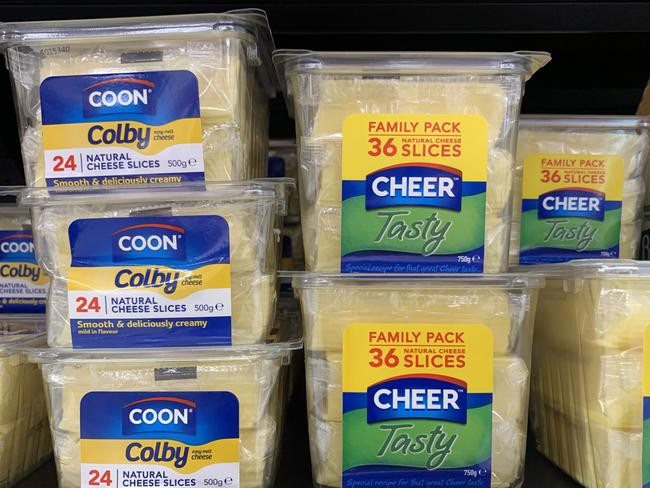Saputo, Bega and Fonterra selling plant-based vegan cheese
Whether it’s with coconut oil or faba beans, Australia’s dairy processors are now producing their own plant-based vegan cheese.
Australia’s big three dairy processors are getting a slice of the vegan cheese market — with one sourcing faux fromage from the other side of the world.
Both Bega and Saputo already have vegan cheese on Australian supermarket shelves, taking on established brands such as UK-made Sheese and Greek-made BioCheese.
With block cheddar retailing about $15 a kilo, vegan imitations are far more lucrative for processors, with many selling for $30 a kilo and higher.
In March, Bega launched its ‘plant-based cheese’ range in a blaze of publicity, with
marketing manager Niamh Farrell claiming the alternative was “a smooth, creamy, cheese-style product”.
But Bega’s new range earned a rebuke from some farmers for conflating dairy with oil-based imitations, as well as vegan consumers unhappy with its dairy links.
Unlike Bega, Saputo launched Cheer Plant-Based cheese with little fanfare.
At $35.50 per kilo, Cheer Plant Based has a coconut oil base with potato starch, maize starch, salt, natural flavourings, yeast extract, acidity regulators thrown in for good measure.
The new Cheer vegan option has similar ingredients to the Saputo-owned Sheese, although its manufacturer says they’re different products.

Saputo Dairy Australia marketing general manager Zoey Saunders said the processor “remained a dairy company first and foremost”.
“Demand for plant-based or flexitarian diets is continuously growing, with consumers seeking alternatives that taste and perform in a similar way to traditional dairy cheese,” Ms Saunders said.
“Cheer’s dairy alternative cheese products include a sliced and shredded plant-based range … Since its launch in March 2023, we have seen strong demand for our Cheer dairy alternative range.”
Ms Saunders said Saputo took over the national distribution of Sheese after Saputo acquired the brand from Bute Island Foods in 2021.
She said Cheer Plant Based and Sheese were made with different recipes and “flavour profiles.”
“While our Cheer plant-based range and Sheese are both produced in Scotland, they each have a unique recipe, flavour profile and taste to appeal to a wide variety of consumers,” she said.
Dairy Australia nutrition policy manager Melissa Cameron said national dietary guidelines do not recognise ‘plant-based cheese’ as an alternative to cheese.
“While plant-based products often receive a health halo, these are not nutritionally equivalent to cheese,” she said.
“And there is currently no scientific research to demonstrate their health benefits.”
Ms Cameron said a recent American study concluded that vegan alternatives should not be considered as a nutritional replacement for cheese.
“They typically contain little protein and calcium and are high in saturated fat due to the presence of coconut oil,” she said.
A 2020 consumer study from Dairy Australia found 56 per cent of consumers who purchased plant-based ‘cheese’ products reported doing so because they believed they were a healthier option.
“However, it’s important to note these products account for a very small share of the overall cheese market – roughly 4 per cent,” Ms Cameron said.
Last year, the NZ co-operative began researching plant-based alternatives at its Palmerston North site, although has yet to release a vegan cheese product in Australia.
“In science and technology, we’ve been experimenting, because if the world did move (towards vegan cheese) you don’t want to be caught napping,” Mr Dedoncker said.
“There’s definitely parts of the world where ‘formulated products’ which include dairy – but not only dairy – blended with other products, can feed the hungry in parts of the world, is a great idea.”





